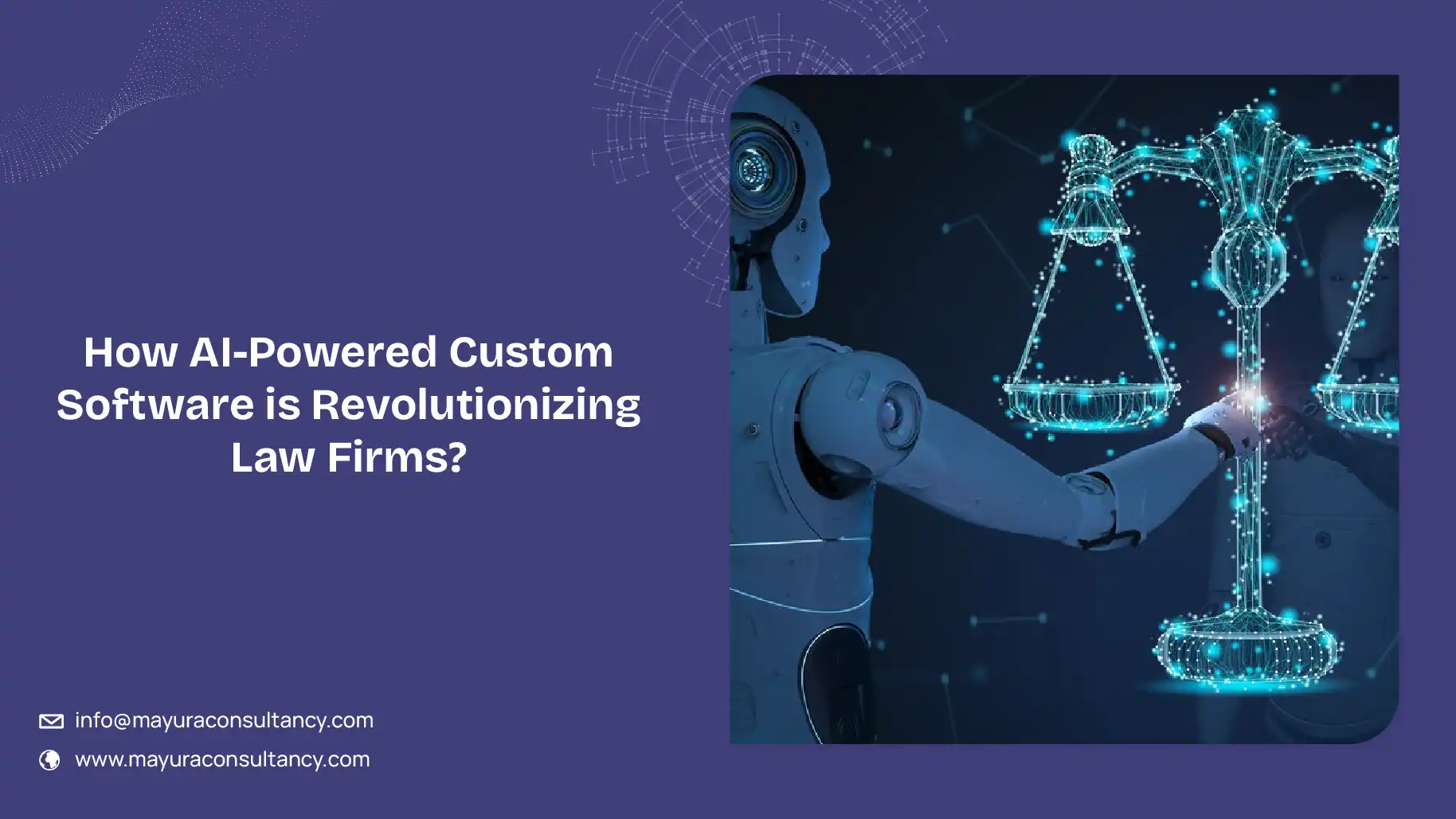Artificial intelligence has emerged as a game-changer for businesses, transforming almost every industry. From small startups to Fortune 500 companies, businesses across the globe are leveraging this technology to solve complex challenges, streamline operations, and make data-driven decisions.
As AI is evolving rapidly, new trends are emerging and shaping businesses. These trends offer opportunities to transform your business and gain a competitive edge.
Is your business ready to adopt the latest AI trends shaping the future? In this blog, we will explore the top AI trends 2025, their benefits, and the challenges in implementing them.
This Article Contains:
Top AI Trends in 2025 That Will Shape the Future of Business
AI is one of the latest technologies in 2025 and many new developments are happening in this field. Here are the recent AI trends that are shaping businesses.

1. Generative AI Integration: Unlocking Creativity and Efficiency
Since the launch of ChatGPT as a Large Language Model in November 2022, generative AI integration continues to be among the top AI trends 2025, and rightly so. This new-age technology has revolutionized creativity and problem-solving for businesses.
By leveraging algorithms to produce customized content, designs, and ideas, generative AI automates various manual tasks. Generative AI models like ChatGPT, Dall-E, MusicFX, Synthesia etc. can generate various types of content, such as text, images, music, and videos, based on the inputs.
Key Benefits and Applications
Automates repetitive creative tasks like content generation and product design, saving time and resources.
Empowers chatbots and virtual assistants with realistic, human-like interactions, enhancing customer experiences.
Helps marketing teams create personalized campaigns using AI-generated content tailored to the business needs.
2. Multimodal AI Integration: Connecting Diverse Data Sources
AI technology has come a long way from a simple program for playing checkers to machine learning-powered complex models that can handle complex tasks. Among these, multimodal AI has emerged as a new AI trend of 2025.
But, what exactly is multimodal AI?
Multimodal AI is a machine learning model that can process and integrate information from various types of data, including text, images, gestures, audio, video, etc. This allows humans to interact with computers more naturally, using multiple senses and modes of communication, making it one of the top AI trends for businesses.
Key Benefits and Applications
Enhances healthcare diagnostics by integrating imaging data, patient records, and lab results for comprehensive analysis.
Improves ecommerce search engines by understanding and combining visual and textual inputs for better product recommendations.
3. AI for Enhanced Productivity: Streamlining Operations
Do you know that AI can increase employee productivity by 66%?
That is what a recent study has revealed. Not only this, the more complex the task, the bigger the gains. This shows AI is becoming indispensable for companies looking to enhance productivity.
By automating routine tasks and improving decision-making, AI empowers employees to focus on strategic initiatives. This capability places AI applications in the workplace among the latest AI trends in 2025.
Key Benefits and Applications
Reduces workload by automating routine and mundane tasks such as data entry and customer inquiries.
Provides intelligent insights for decision-making by analyzing large datasets in real-time.
Helps programmers write cleaner code in less time and improve productivity.
4. AI in Healthcare: Revolutionizing Patient Care
The application of AI in healthcare is growing significantly, offering innovative solutions in areas like diagnostics, treatment, and patient management. From personalized treatment plans and AI-driven predictive analytics to drug discovery and medical image interpretation, these current AI trends are driving transformative changes in the healthcare industry.
According to a Statista report, AI in the healthcare market was about USD 11 billion in 2021 to reach around USD 188 billion by 2030, growing at a CAGR of 37.08%. This tremendous growth shows the impact of AI in healthcare, making it one of the recent AI trends.
Key Benefits and Applications
Improves diagnostic accuracy through AI-powered imaging systems that help detect diseases like cancer.
Enables predictive analytics to identify at-risk patients and offer personalized treatment plans.
5. AI-Powered Personalization: Enhancing Customer Engagement
Why is providing a personalized experience so critical for businesses?
According to McKinsey, personalized services can improve customer engagement and satisfaction by 20 to 30 percent. AI-powered personalization is transforming customer experiences by recommending tailored products, services, and content. This trend will continue to grow in 2025, driven by customer demand for more relevant services.
Personalized customer service is no longer about using their names in conversations or greeting them. It involves using customer data to understand your customer’s behavior and preferences and tailor your offerings accordingly.
Key Benefits and Applications
Improves customer retention by offering personalized product recommendations based on their preference and purchase history.
Enhances marketing campaigns with AI-driven segmentation and dynamic content.
6. Predictive Analytics to Stay Ahead of the Curve
As we enter 2025, predictive analytics continue to remain among the top AI trends like the last few years, transforming businesses across industries. But what is behind its growing popularity?
Predictive analytics uses machine learning algorithms to analyze historical data, identify patterns, and make accurate predictions about future outcomes. By leveraging these insights, businesses can analyze customer behavior and make data-driven decisions that accelerate business growth and innovation.
Key Benefits and Applications
Anticipate customer needs: Predictive analytics helps companies forecast demand, personalize experiences, and improve customer satisfaction.
Mitigate risks: By identifying potential risks and opportunities, businesses can make informed decisions, reduce costs, and optimize resources.
Drive innovation: Predictive analytics facilitates experimentation, accelerates product development, and enables companies to stay ahead of the competition.
7. Regulation and Ethical Usage of AI: Building Trust
As AI adoption accelerates, regulatory frameworks and ethical practices are becoming important. Moreover, with the growing integration of AI in sensitive areas like healthcare and fintech software development, regulations are tightening to ensure accountability and prevent bias. This makes it essential for companies to innovate responsibly in 2025.
As a result, businesses are adopting ethical AI practices to address bias, fake content, transparency, and data privacy issues. These practices not only help enterprises stay compliant with regulatory compliance but also help in earning customer confidence.
Key Benefits and Applications
Ensures data privacy, transparency, and security and mitigates bias.
Aligns AI innovations with legal and ethical standards, reducing compliance risks.
8. Conversational AI: Redefining Customer Interaction
Conversational AI is among the current AI trends gaining popularity across businesses. It transforms how companies engage with customers and employees through AI chatbot development. These smart chatbots and voice assistants can offer seamless, human-like conversations, helping businesses automate customer service and streamline operations.
With the integration of natural language processing (NLP) and generative AI, chatbots have become smarter and capable of delivering hyper-personalized experiences. Its growing adoption across industries like retail, healthcare, and customer support demonstrates its ability to improve efficiency and build stronger relationships with users.
Key Benefits and Applications
Enhances customer engagement and satisfaction with 24/7 availability and quick resolutions.
Reduces operational costs for businesses by automating customer support.
9. Digital Twin & Digital Human
Digital Twins and digital humans are emerging as future AI trends, revolutionizing industries with their transformative and innovative solutions. According to a Market and Market report, the digital twin market size is expected to reach USD 110.1 billion by 2028 from USD $10.1 billion in 2023.
This technology enables businesses to simulate real-world scenarios, test solutions, and improve decision-making without physical risks or investing a significant amount. Like a digital twin, a digital human is a virtual avatar mimicking human behavior and interactions, offering personalized user experiences.
Key Benefits and Applications
Healthcare: Allows the creation of virtual models of patients' bodies, which doctors can use to simulate and optimize treatments.
Manufacturing: Simulate and improve production processes, reduce downtime, and improve product quality.
Automotive: Can create digital models of vehicles, which can provide insights into the vehicle's behavior, as well as software, mechanical, and electrical models.
10. AI Will Power Cybersecurity
Are you aware of the heavy price individuals and businesses have to pay due to data breaches?
According to IBM, the global average of data breaches has reached USD 4.88 million. This shows the need for more efficient data security policies, and that's why AI-driven cybersecurity measures are emerging as top AI trends.
Leveraging AI capabilities in threat detection, anomaly analysis, and automated responses, businesses can proactively protect sensitive data and infrastructure. Reports indicate that AI-powered solutions can reduce breach detection times by 96%, significantly limiting damage.
Key Benefits and Applications
Rapidly identifies and mitigates threats, minimizing data breaches and preventing future vulnerabilities.
Reduces the financial impact of cyberattacks with faster and automated responses.
11. Fine-tuning LLMs to Unlock Their Full Potential
Large Language Models (LLMs) have transformed businesses with their abilities to handle tasks like text generation, translation, and summarization. Trained on massive datasets, these models offer unparalleled efficiency. However, effectiveness is limited in addressing specific tasks or domain-specific challenges.
Fine-tuning LLMs bridges this gap by customizing pre-trained LLMs for specialized applications. Businesses are tailoring LLMs to unlock greater value from AI while reducing resource consumption, making it one of the top AI trends in 2025 and in the coming years.
Key Benefits and Applications
It offers industry-specific AI solutions with higher accuracy and relevance.
Simplifies processes like legal research, financial forecasting, and personalized content creation.
The Future of AI and AI Market Forecast
In the coming years, AI is expected to become more integrated into business and people’s lives. With progress in Natural Language Processing, Multimodal AI, and Predictive Analytics, AI tools will be smarter and more effective.
It will also contribute significantly to the healthcare, manufacturing, cybersecurity, and customer service industries. Moreover, the democratization of AI tools is making it easy for businesses of all sizes to leverage AI capabilities.
As AI adoption accelerates, we can expect to see increased adoption, with 70% of organizations planning to deploy AI by 2027. According to Fortune Business Insights, the global AI market is projected to grow from USD 233.46 billion in 2024 to $1771.62 billion by 2032, with AI-powered solutions expected to drive significant business value.
Wrapping UP
As AI continues to evolve, businesses must adopt the top AI trends to stay relevant in the competitive business environment. By implementing these trends, companies can drive growth, improve efficiency, and deliver unparalleled customer experiences.
At Mayura Consultancy Services, we offer comprehensive AI development services, including generative AI development, AI-powered software development, and chatbot development, to help businesses transform their operations. Partner with us to unlock the true potential of AI and gain a competitive edge in your industry.
Frequently Asked Questions
Yes, small and medium-sized businesses can adopt AI using cloud-based tools, SaaS platforms, and tailored AI development for cost-effective AI solutions.
Yes, MCS specializes in delivering tailored AI solutions, from consulting to custom AI development and integrations, helping businesses stay competitive and drive innovation.







Comments
Share Your Feedback
Your email address will not be published. Required fields are marked *